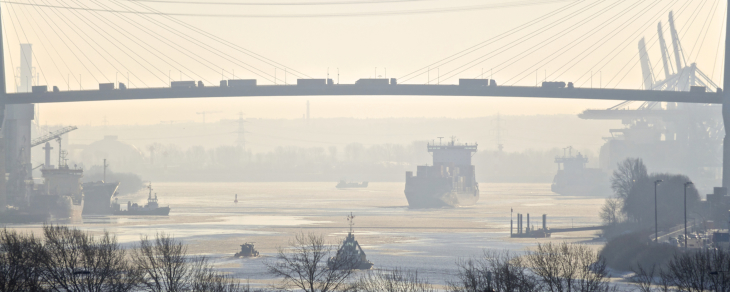WINTER
Investigating climate change related impacts on the urban winter climate of Hamburg

Foto: istock/traumschoen
Results
Background
Influences of climate change on urban climate are often investigated in the context of increased values for high temperatures or precipitation extremes. As a consequence, many studies concentrate on the climate change impacts that happen during summer. When looking at projected temperature and precipitation changes, mean changes are larger in winter than in summer, at least for northern Germany. At the same time, the distribution of temperature is broadened, which implies that winters with temperatures below freezing point or snowfall will still happen in the future.
Aims and objectives
The aim of this project is to quantify climate change related impacts on the winter climate of Hamburg in detail. For this purpose, an existing canopy resolving model (MITRAS) will be expanded to allow a detailed analysis of precipitation including snow and of frost distribution at the local scale. The model will be forced by regional climate model results using a here to be newly developed statistical-dynamical downscaling approach. With this tool the impact on the local winter climate, as well as of adaption measures developed for a changed summer climate are investigated. To ensure model results occur in time a code optimisation and parallelisation is part of this project.
Project staff
Principal Investigators
Prof. Dr. Heinke Schlünzen, Universität Hamburg
Dr. Kevin Sieck, Climate Service Center Germany (GERICS)
Postdoc
Dr. Bodo Alexander Voigt, Climate Service Center Germany (GERICS) (until 30.04.2021)
Contributing Researcher
Dr. David Grawe, Universität Hamburg
Dr. Hinnerk Stüben, Universität Hamburg
PhD Students
Louisa Bell, Climate Service Center Germany (GERICS)
Karolin Ferner, Climate Service Center Germany (GERICS)

